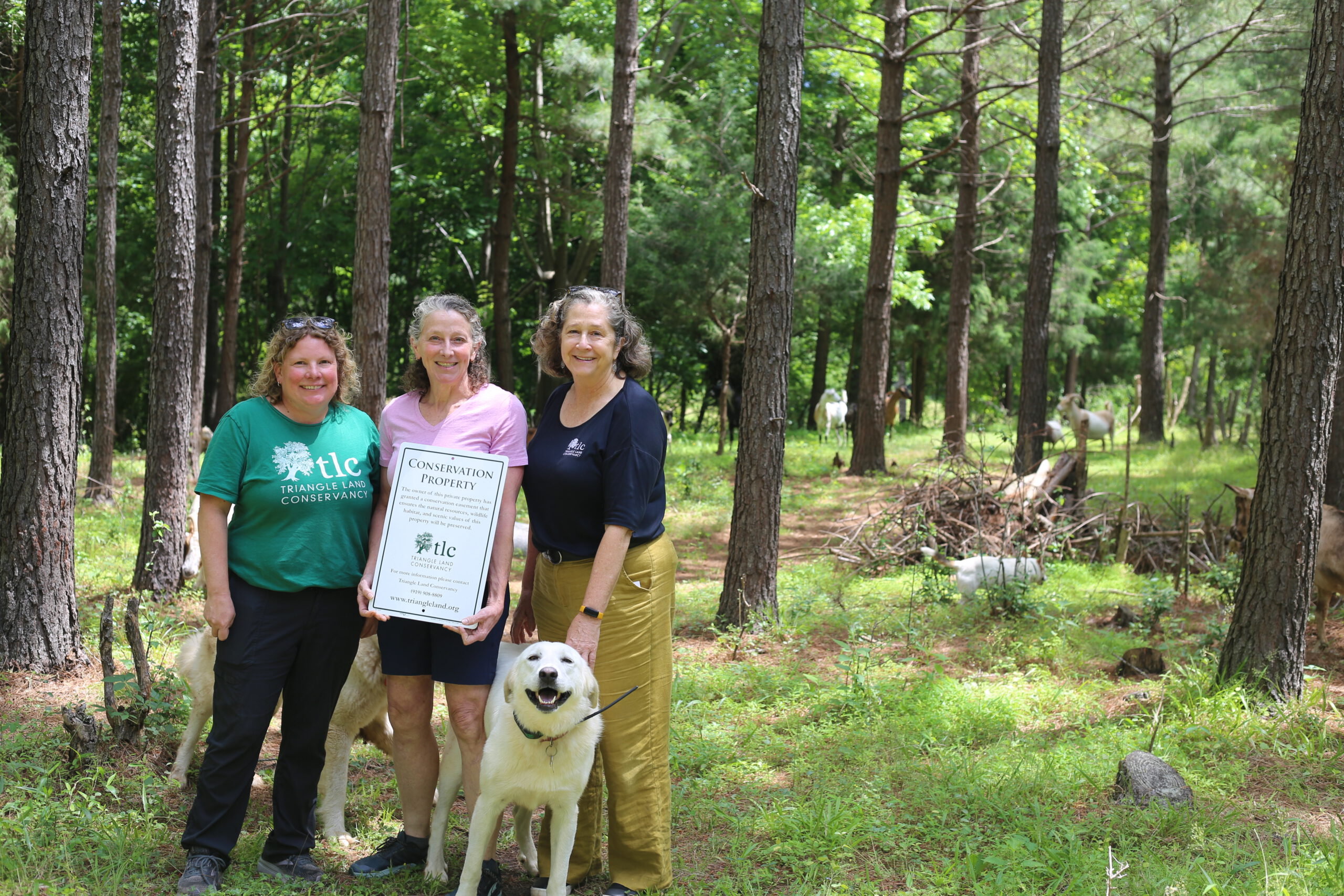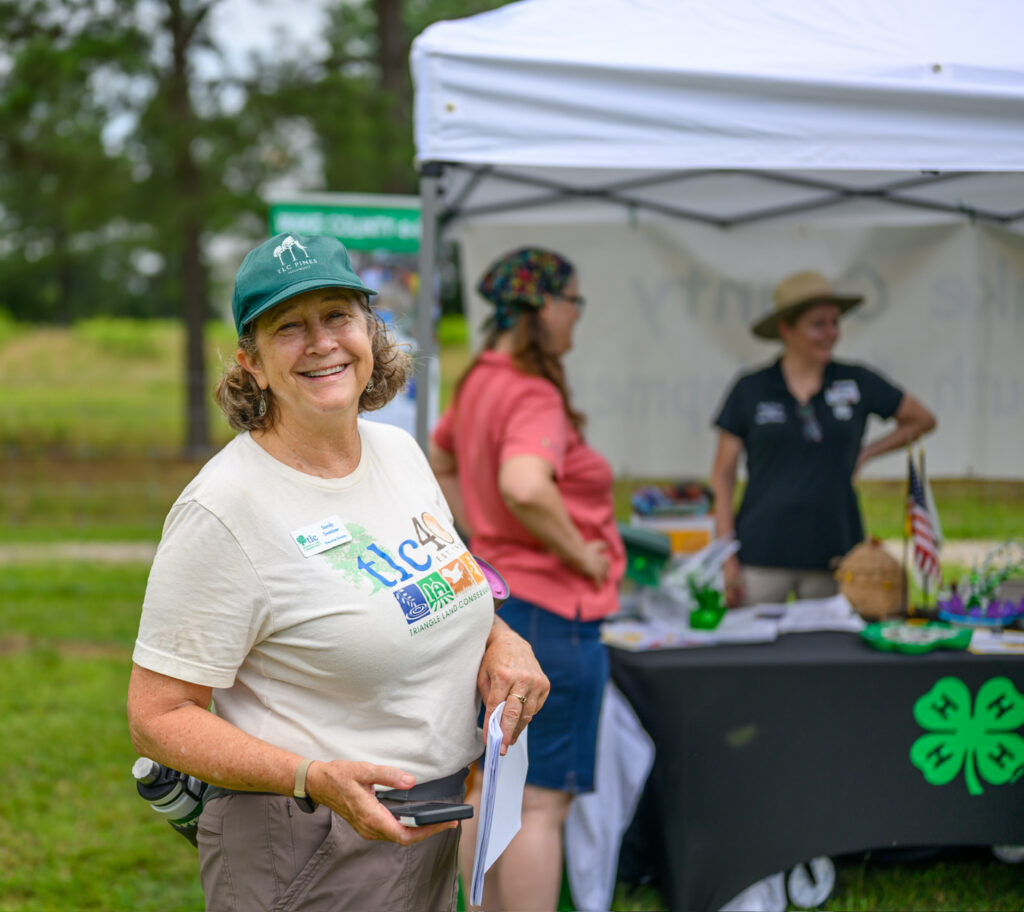Stakeholder Notification/Public Notice The land trust accreditation program recognizes land conservation organizations that meet national…
August 17 is National Nonprofit Day. To celebrate, we’re breaking down what it means to be a nonprofit. As defined by Cornell Law School, a nonprofit is an organization that is created for a purpose other than generating profit.
“I think it’s an organization that operates for the good of the community, as opposed to for the financial gain of its owners and members,” explains Triangle Land Conservancy's Executive Director Sandy Sweitzer.
In fact, in order to qualify as a nonprofit, an organization must serve the public good through its work. Rather than distributing income to shareholders, all of a nonprofit’s revenue is reinvested into the organization to advance its mission and vision. Funding for nonprofits can come from individual donations, grants, or other fundraising efforts. At TLC, 60% of our operating income comes from individual donations, while the remaining 40% is sourced from foundation and corporate grants and other sources.
Triangle Land Conservancy is a land trust, a nonprofit whose mission is conserving land. Founded by a group of volunteers, TLC officially became a nonprofit in 1983. For its first decade, TLC was mostly run by volunteers, with one part-time administrative assistant. In 1994, its first Executive Director, Kate Dixon, was hired.
Sandy Sweitzer, TLC’s current Executive Director, has been working in the nonprofit sector for over 40 years. Her career has spanned nonviolent advocacy, affordable housing, mediation, library services, and conservation. With 12 years at TLC, 10 of which at the helm as Executive Director, Sandy says the experience has exceeded all expectations.
“It’s been amazing. It is just so much better than I ever imagined,” she began. “We have such a great staff and supporters, and we keep expanding both.”
As a land trust, TLC acquires land and conservation easements, through purchase or donation, which are either managed by TLC or transferred to partners, such as municipalities and state agencies. All land and easements acquired by TLC must have conservation value, meaning that it supports at least one public benefit of conservation: safeguarding clean water, protecting natural habitats, supporting local farms, or connecting people with nature.

Donations to TLC help support the staff time necessary to purchase and manage land and conservation easements, as well as programs that promote equitable access to land ownership, such as the Williamson Farm Program and the Good Ground Initiative, and community environmental education programs, such as the Pathways into Natural Environments and Science (PINES) Fellowship.
When asked what it means to be the Executive Director of TLC, Sandy paused for a moment before responding.
“I feel really honored,” she answered. “It’s a culmination of, without me knowing it, my whole professional career. It got me here. Where I needed to be.”
If you’re interested in supporting TLC and contributing to our mission to conserve land in the Triangle, visit our Giving page here.

